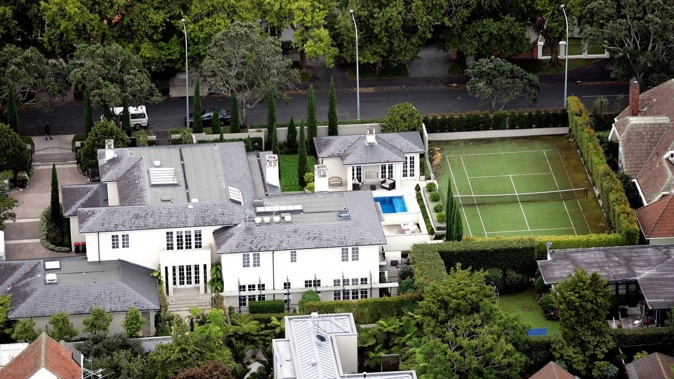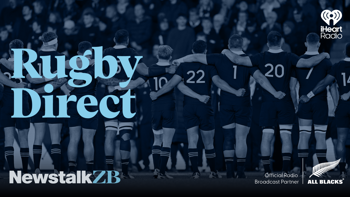
A Chinese businessman’s decision to buy Sir John Key’s former mansion for $23.5 million has proved to be the worst house purchase made in New Zealand in recent years, according to new data.
That’s because the businessman suffered a $7.2m loss when he resold the former prime minister’s glamorous home in November, having never even lived in it.
The resale was the biggest loss made anywhere in the country in the past five years, data by property website OneRoof and researchers Valocity has found.
It comes at a time when more and more Auckland homes have been selling for a loss.
OneRoof-Valocity found 12 per cent of all Auckland homes sold in the first three months of this year also made a loss.
By contrast, just 4 per cent of homes sold for a loss in 2022 and less than 1 per cent sold for a loss during the 2021 boom.
“One homeowner’s pain is another’s gain and shows that timing is everything in the market — although it’s not always easy to spot when you’re in the moment,” OneRoof editor Owen Vaughan said about the huge loss on Key’s former home.
Researchers identified Key’s former house as the biggest sales flop by analysing 304,079 resales between 2018 and March 2023.
Most homeowners have actually been pocketing huge gains during this period.
OneRoof-Valocity found 97 per cent — or 296,496 resales — made a gain over the past five years, collectively earning their owners $103 billion more than what they paid.
On the flip side of the coin, just 3 per cent of resales made a loss in this period, collectively selling for $534m less than what they were bought for.
But in Auckland, the market has turned over the past year.
Of the 12 per cent of Auckland homeowners suffering a loss on their sales during the first three months of 2023, the typical or median amount homeowners lost was $91,500, according to OneRoof-Valocity.
These losses are also typically being made on Auckland homes that were bought only two years ago when house prices were booming.
“Overall, the number of resales posting a gross profit during the worst slump since the GFC is substantial,” OneRoof’s Vaughan said.
“The biggest profits and the biggest losses also reflect the changing tastes of homeowners, with beach properties in Waiheke and Omaha increasingly in demand post Covid.”
The resale of John Key’s former home also suffered from Auckland’s downturn.
However, the Chinese buyer’s deal appeared to have been hit with speed bumps from the start.
The buyer, listed on public records as Lianzhong Chen, first agreed to buy the Keys’ Parnell home back in 2017.
/cloudfront-ap-southeast-2.images.arcpublishing.com/nzme/BGDYZYLYX4GBNUPH2VYXJF6UQE.jpg)
Neighbours became concerned by the home's appearance in 2021 after it appeared to be unkempt. Photo / Hayden Woodward
At the time, it was one of the nation’s most famous houses. Key had not only used the mansion as a setting for political get-togethers, but his son Max also made regular social media posts from within its walls.
The sparkling pool, in particular, became instantly recognisable as the backdrop for Max’s many music videos and viral photos of his famous dad.
However, the Keys negotiated a two-year settlement, meaning Chen took possession in only 2019 when he paid $23m.
Suburban Realty’s Yi Wei Tang told the Herald in September owner Chen visited the home and “loved it”, but incredibly never got to live in it.
That’s because the Covid pandemic hit in 2020, she said.
Closed borders meant Chinese citizen Chen was unable to fly into New Zealand and had not returned since.
Chen, who also owns a Remuera home, had planned to immigrate to New Zealand with his family, said Tang — who brokered the sale between Key and Chen in 2017 and also acted as selling agent for Chen’s resale last year.
However, with increasing business commitments in China and long-lasting border restrictions, he put off immigration and decided to sell, she said.
After an initial resale fell through, Chen then sold the home for $16.3m in November, posting a $7.2m loss.
Yet it isn’t just Auckland homes where losses have increasingly been made in the past six months to a year.
In New Zealand as a whole, 6 per cent of homes sold for a loss during the first quarter of 2023, with the median size of the loss being $70,000.
In 2021, just 0.7 per cent of homes resold nationally for a loss.
Hamilton and Wellington City are the regions, alongside Auckland, that have seen a sharp uptick in losses.
In Q1 2023, the percentage of properties selling at loss in Hamilton was 11 per cent, up from 3 per cent in 2022 and 0.3 per cent in 2021.
For Wellington City, the percentage of losses has gone from a low of 0.4 per cent in 2021 to 6.8 per cent in the first three months of this year.
The OneRoof-Valocity team points out it defines loss as selling for less than the previous purchase price.
The data does not take into account money that homeowners may have spent renovating, upgrading or maintaining their property, or how much they owe the bank.
The full research and list of suburb gains and losses will be published on Monday, June 19, in the OneRoof Property Report, which comes with all copies of Monday’s Herald.
Take your Radio, Podcasts and Music with you









